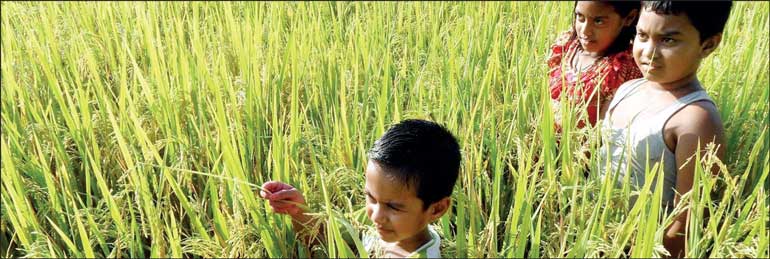Saturday Feb 21, 2026
Saturday Feb 21, 2026
Friday, 12 November 2021 00:00 - - {{hitsCtrl.values.hits}}

In October, the International Rice Research Institute (IRRI) was announced as one of the top four finalists in the inaugural Seeding The Future Global Food System Challenge, an initiative by the Seeding The Future Foundation in collaboration with the Institute of Food Technologists (IFT).
The recognition was for IRRI’s ground-breaking development and deployment of rice cultivars resilient to arsenic toxicity, which provide a safer food crop option in arsenic-polluted regions.
Arsenic is a toxic heavy metal present in various concentrations across Asian soils because of natural geological processes and anthropogenic impacts. Since 2012, IRRI has been doing extensive research on arsenic toxicity in rice across various regions in Asia, particularly the impact on the rice plant as well as on rice consumers. A high accumulation of the metal in rice plants can negatively affect crop performance as well as threaten the health of people and livestock.
Through cross-breeding with rice varieties that exclude arsenic intake, IRRI has developed rice cultivars that absorb significantly less arsenic from the environment, making them a more suitable crop for many high-arsenic rice-growing communities. This provides socioeconomic benefits and contributes to better health and safer food, especially for children and women.
Out of nearly 900 preliminary submissions, only four finalists were selected for the Grand Prize category, two of which will be awarded $ 250,000. The other category finalists included CGIAR sister centre Worldfish for nutrient-rich small fish production, Solar Freeze for solar-powered cold storage, and CSIR for thermal food processing.
“The Seeding The Future Global Food System Challenge seeks to inspire and support passionate, creative, diverse, and multidisciplinary innovations that will help transform the food system,” said Seeding The Future Foundation Founder Bernhard van Lengerich.
“The submitted ideas for all award categories are very innovative with high impact potential to create a more safe, nutritious, sustainable, and equitable food system, resulting in food that is trusted, affordable, and accessible by consumers.”
“We are delighted to have received applications from start-ups, non-profits, universities, research institutions, and multi-organisation collaborations from more than 60 countries,” said IFT senior director of knowledge and learning, and experiences Corrine Calice. “Thank you to everyone who participated and congratulations to the finalists.”
The Seeding The Future Global Food System Challenge is focused on empowering transdisciplinary teams to develop scalable and high-impact innovations that reside at the intersection of three domains: safe and nutritious food for a healthy diet; sustainably produced; and accessible, appealing, affordable, and trusted by consumers.
To incentivise innovation at all levels, including ideation, development, and distribution, the Challenge includes three levels of awards – the Grand Prize, the Growth Grant, and the Seed Grant – totalling up to $ 1 million annually.